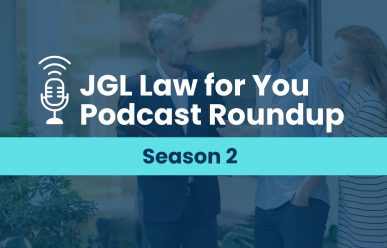
- You arrive at settlement to finalize the purchase of a home from Mr. & Mrs. Seller. After settlement, the real Mrs. Seller claims that her name was forged; she never agreed to nor had knowledge of the transaction and therefore still owns the property. If you don’t have title insurance and Mrs. Seller’s claims are true, you may actually own only Mr. Seller’s interest in the property. If the entire transaction is found to be fraudulent, you may lose your entire ownership of the property. If you had purchased title insurance, the title insurance company might negotiate with the real Mrs. Seller and reach a settlement so that you could remain in your new home.
- Mr. Decedent owned a piece of real property and no Will can be found at the time of his death. Mr. Personal Representative sells the piece of real property to you on behalf of Mr. Decedent’s heirs at law; his three children, A, B and C. After settlement, a valid Will for Mr. Decedent is found stating that the real property has been specifically devised to Mr. Decedent’s good friend, Mr. Neighbor. Mr. Neighbor now sues you, claiming that he is the true and rightful owner of the property. If you had purchased title insurance, the cost of defending the claim made by Mr. Neighbor could be covered as well as any financial loss that you may incur.
- You have now decided to build your dream home. However, the builder didn’t pay the roofer and now the roofer wants his payment, so he files a lien against the property. Without a title search alerting you to this lien, and an owner’s policy protecting you, you would become responsible for paying this debt— meaning you’d be paying the roofer instead of purchasing new living room furniture. If you had purchased an Owner’s Title Policy, the insurance company likely would have relieved you from paying that bill.
- After a months-long search, you finally find your family’s dream home—in a safe neighborhood with a great school district, and a big backyard for the swimming pool you plan to build. You move in and hire a contractor to build the pool, but a few days into construction the contractor finds an underground utility line running right through the middle of your backyard. You check your owner’s policy of title insurance, and find out that the title search did not discover this easement. Due to the fact that you had obtained an owner’s policy, your title insurance company may pay to have the underground utility relocated so you can build your swimming pool.
These are just a couple of instances where not purchasing title insurance may cost you in the long run. Having an Owner’s Title Policy will provide protection against ownership challenges, errors or omissions in deeds, mistakes in examining records, missed liens, forgery and undisclosed heirs, among other things. What about the extra cost? It’s not as much as you think! Title insurance is only a one-time premium paid at settlement and is based on the purchase price of the property. The protection of the title insurance continues for as long as you OR your heirs own the property. So the real question isn’t how much does title insurance cost; it is how much could it cost me if I don’t have title insurance?


